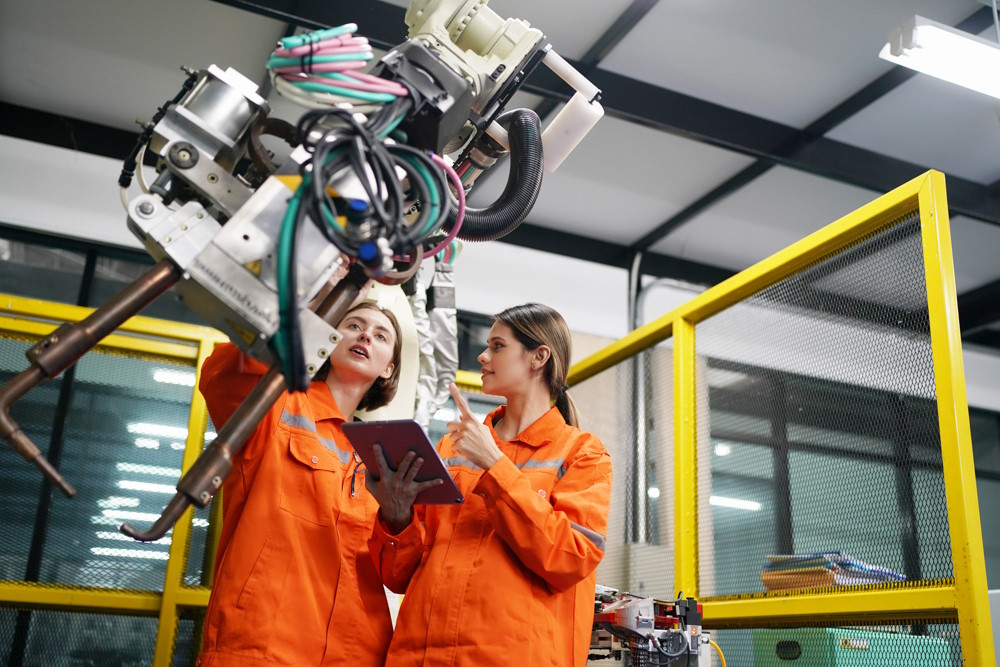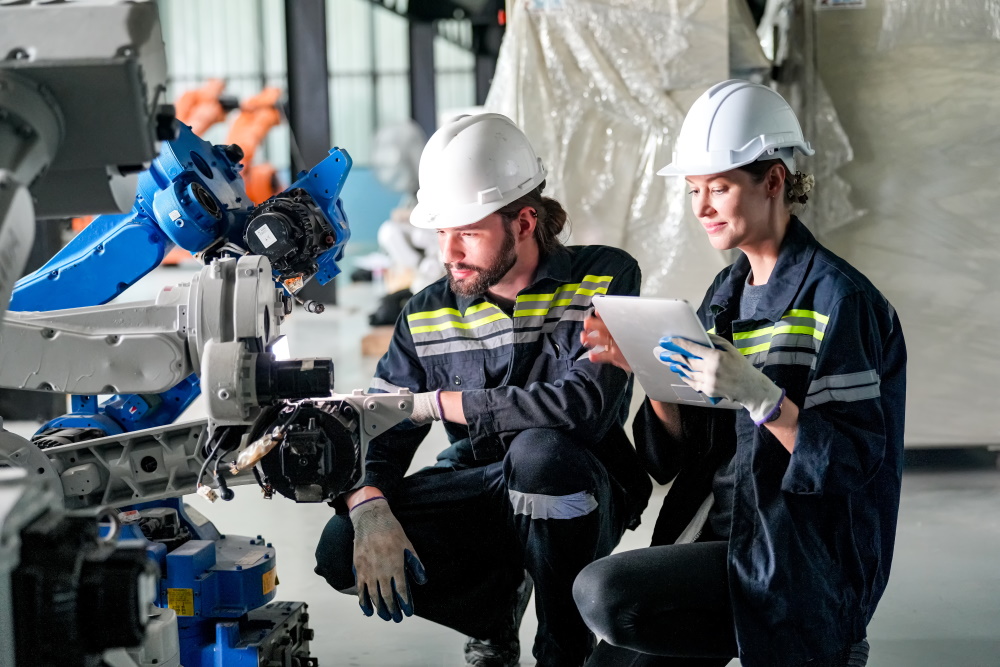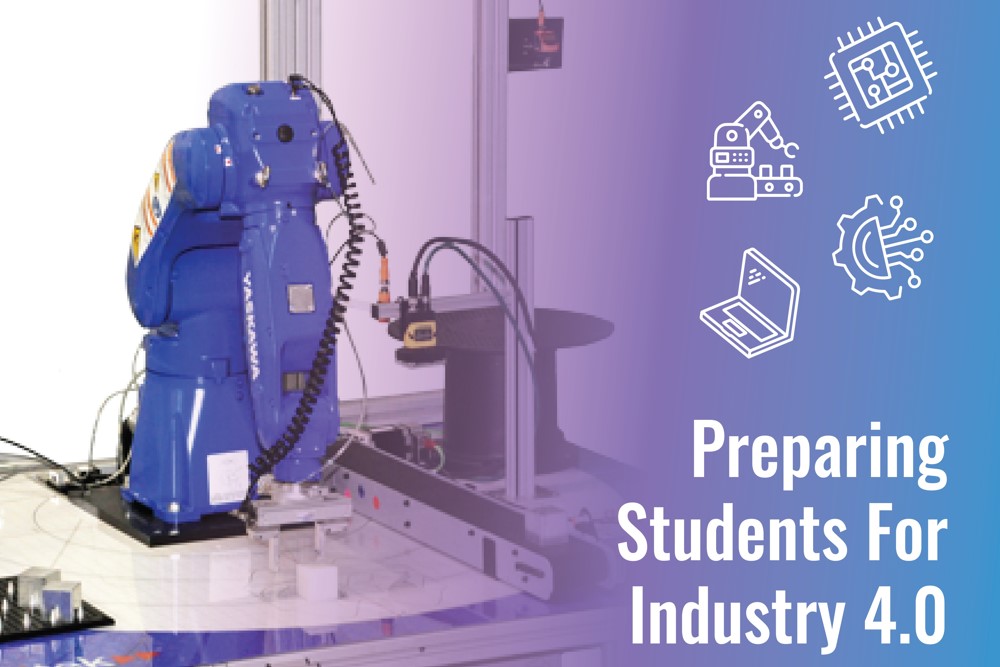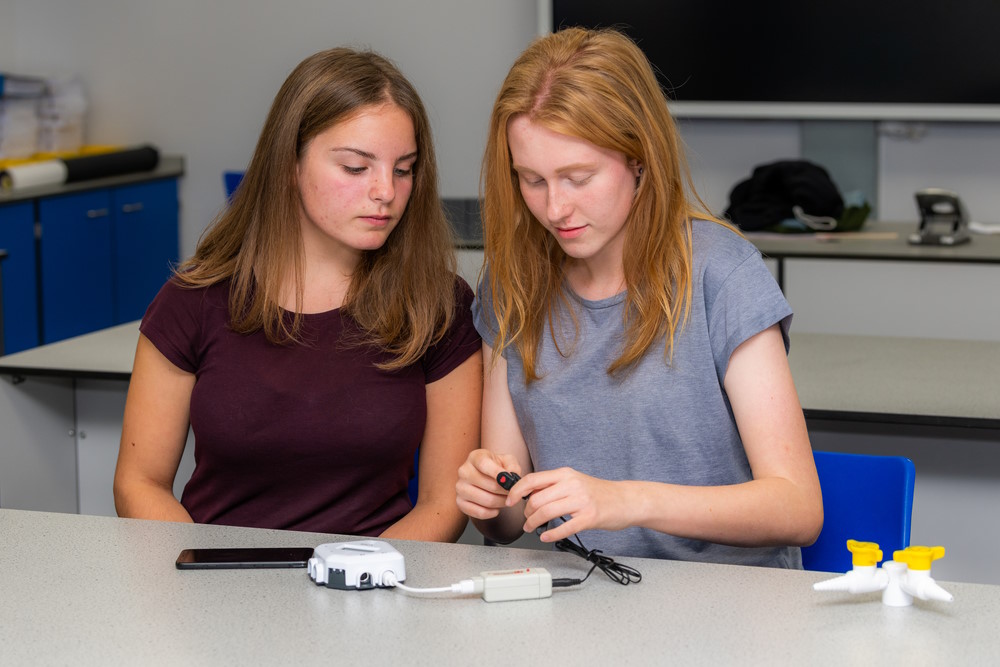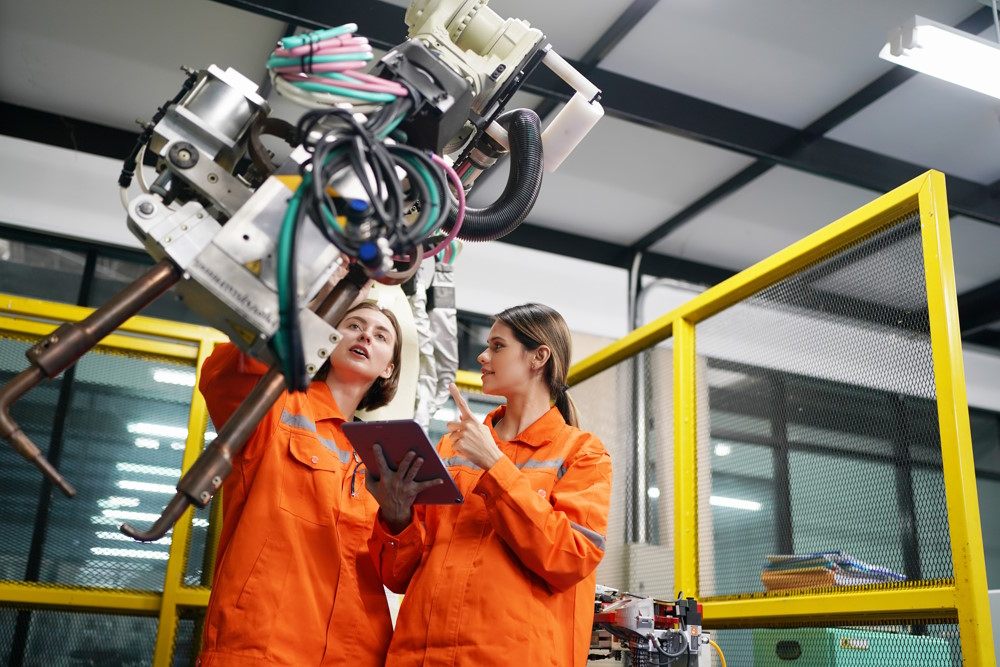
The field of artificial intelligence (AI) is rapidly advancing, and AI labs are at the forefront of this change in the education sector. The integration of robotics, computers and equipment with the Internet of
Things (IoT) and the use of machine learning (ML) algorithms are transforming the future of various industries. As a result, learning the nuances of the AI technology is turning out to be more important than
ever.
The impact of AI on various industries and its rapid growth is driving the demand for professionals with AI skills, making it a valuable addition to students’ skill sets. By learning AI, you can better prepare your students for the jobs of the future, which will likely require a strong understanding of the subject and related technologies.
The key to succeeding in an AI-driven world is knowing how to harness the power of the technology. In this regard, AI labs are playing a significant role in colleges and universities in transferring knowledge and giving students hands-on experience and exposure to applications of the technology to solve real-world problems.
Besides transforming the future of education, AI labs will also play an important part in shaping the careers of your students. The future is bright for AI, and educators who strive to equip their students with the needed skills will enhance their chances of employment. In addition to improving career prospects for students, AI labs can be a great tool for professional development for teachers and offer a host of other benefits:
-
Skill Development: AI labs provide opportunities for your students and researchers to gain hands-on experience, develop skills including data collection, AI model training and coding and work on projects related to machine learning, natural language processing, computer vision, robotics, game theory and machine perception among others.
-
Research & Development: AI Labs serve as a hub for academic researchers, students, and industry partners to work together and advance the field of AI through cutting-edge research and experimentation. Not to forget that advancements such as mass commercialisation of robots and the technology underlying Internet and the World Wide Web were all made possible by an AI lab, the MIT CSAIL
(Massachusetts Institute of Technology Computer Science and Artificial Intelligence Laboratory). -
Industry Collaboration: AI labs facilitate collaboration between academia and industry, allowing for the transfer of cutting-edge research into real-world applications and the creation of new products and services.
-
Learning Opportunities for Teachers: You don’t have to be an expert to teach AI. While you might possess a degree in your area of specialisation such as Electrical or Computer Science, you can use the many resources available, regardless of your experience or familiarity with AI, to kick start a programme in your college. All it needs is interest, initiative and infrastructure. Seeking the help of an AI labs solution provider can take care of the infrastructure part completely. In fact, some of them also help in developing relevant content for the programme.
Setting up an AI lab can also facilitate learning for teachers. The labs provide access to cutting-edge technology and AI resources, collaboration and research opportunities, and thereby scope for professional development. Teachers can explore and experiment with AI technologies, learn from AI experts and other AI experienced teachers. It can also help them develop new teaching approaches and stay up-to-date with the latest advancements in AI.
-
Relevant new programmes: As AI labs facilitate collaboration between academicians and the industry, you will be better placed in understanding the requirements of the industry. It helps you understand what skills and knowledge are in demand, so you can tailor your programmes accordingly. By developing an industry-informed curriculum that incorporates the latest AI technologies, you can ensure that your students have the skills needed to succeed in the job market. You can also guide your students in work-integrated learning programmes such as internships and co-op placements to help them gain practical experience working with AI technologies.
-
Leverage data: As the students and researchers work on various projects at the AI Labs, they will be using large sets of data. By providing them access to AI tools and technologies, AI labs can support data-driven research by identifying patterns and relationships in data.

